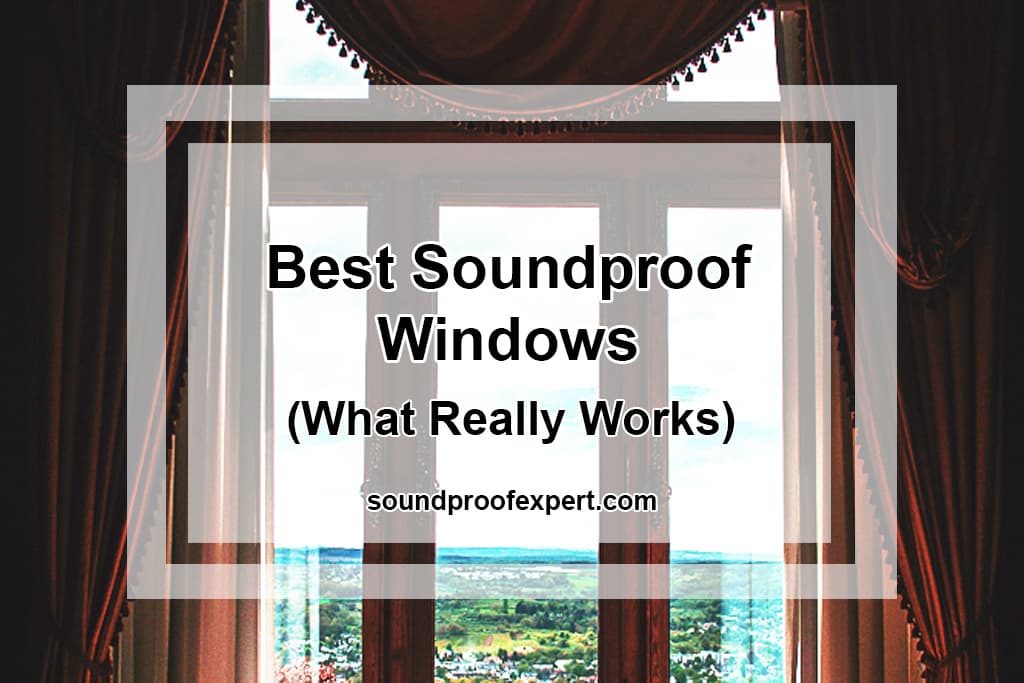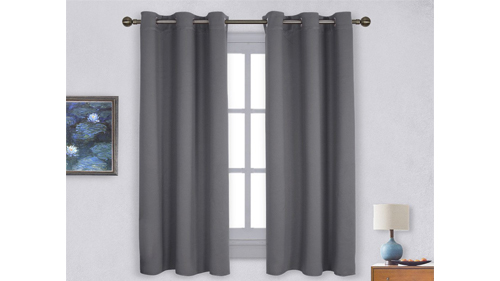
Are you trying to keep out unwanted noise from the highway or the city from entering your home? Soundproof windows are another soundproof method that has emerged to quiet down your home from loud, unwanted noises.
Many times it is thought that the window panes themselves are not the issue, but rather a chimney, holes, or cracks around the home causing the issue. But what do you do when your old windows are, in fact, the culprit of the sound entering your home?
Strangely enough, many different companies and individuals have different ideas about what it takes to have soundproof windows.
Are Soundproof Windows Really Soundproof?
The bold reality of soundproof windows is that no windows are 100% soundproof. All windows are going to allow some bit of sound to pass through them.
Different types of windows and different manufacturers of windows will provide windows that lessen the sound emitted or passed through that a home or business owner may hear. Chances are, if your home was built at the turn of the century and never updated, there is a window out there that is going to provide more soundproofing than what you currently have. That’s the good news!
How is Soundproofing for Windows Determined?
When it comes to windows, the sound that passes through the window is measured in STC or it’s Sound Transmission Class. The STC of a standard single pane window is rated around 26 to 28.
By replacing a single pane window with a double pane window, the STC will be almost the same from 26 to 30. The reason that the number doesn’t drastically increase is that while there may be two panes of glass with a small gap between them, the reality is that particularly with cheaper windows, the panes are thinner in order to keep a similar thickness of overall glass.
By reducing the size of the two panes, we eliminate the STC improvement. It is important to check the STC rating when purchasing any window however this is not always easy to find.
So how do we achieve soundproofing windows? Some manufacturers will simply install another window outside of the existing window, and the newly installed window will have a high STC value thus stopping the sound from transmitting through.

Photo by Carlos Caamal from Pexels
Other manufacturers will replace the existing windows with a window that has a higher STC value. This can be very costly as these windows are not usually available for purchase locally and are cut to order. This can be achieved by replacing the panes on the existing window or by replacing the entire window, casing and all.
Another option aside from this would be to install triple-pane windows. Triple pane windows will be better than double pane windows of good quality, but not quite as high as windows labeled as soundproofing windows.
So What’s the Bottom Line?
The bottom line is that windows are not truly 100% soundproof, but there is always room for improvement. That’s the good news!
As I mentioned above, if your home was built in the 1900s, there is a good chance you can update your outdated windows to enhance the soundproofing ability of the windows currently installed.
If your home was built around 2000, you could add double or triple-pane windows to help with soundproofing. This additional layer of glass will help sounds from entering your home through the thin or outdated windows.
Other good news is that you can add soundproofing materials to your current windows if you do not want to replace your current windows. Some of these soundproofing materials include adhesive foam tape and sealing tape. These soundproofing sealants are self-adhesive and are applied to the corners of the windows to help reduce sounds that enter the home through the windows.
Do your windows have any visual cracks you can seal? By sealing these cracks with noise-reducing sealant, such as Green Glue Noise Proofing Sealant, you can seal any cracks in the window pane by applying a simple caulking sealant. You will need a one-quart sized caulk gun for application.
Simply add this noise proofing sealant to any visible crack in the window pane, no matter how big or small. Even the smallest crack in a window pane can let significant noise into your home. Sealing these cracks may keep you from having to fully replace all windows of your home for successful soundproofing.
The last soundproofing element you can add to your windows is soundproofing blankets or curtains.
NICETOWN Thermal Insulated Blackout Curtains are perfect for keeping noise (and light) from entering any room in your home. They come in a variety of colors that help decorate your room, as well as keep your room cozy and quiet.
Audimute Sound Absorption Dampening Blanket has a 0.85 NRC rating. NRC stands for noise reduction coefficient. This means that 85% of sounds and noises are absorbed in this sound dampening blanket. You can place this blanket over windows or doors with windows that allow sounds to enter the home. This blanket will significantly reduce sounds and noises from entering your home.
Final Thoughts
If your home is older, you will want to update your windows for soundproofing, as well as energy efficiency. It is amazing how those two elements go together. It is like killing two birds with one stone. If you replace your outdated windows in your home for one reason, the other issue will automatically solve itself as well.
If your home is newer and the windows are early in their lifespan, you should look into sealing any visible cracks with noise-reducing sealant. To step it up a notch, you can add additional soundproofing elements, such as soundproofing curtains or sound absorption blankets, to your current windows. This will help you create the best soundproof windows without having to completely break your bank.



